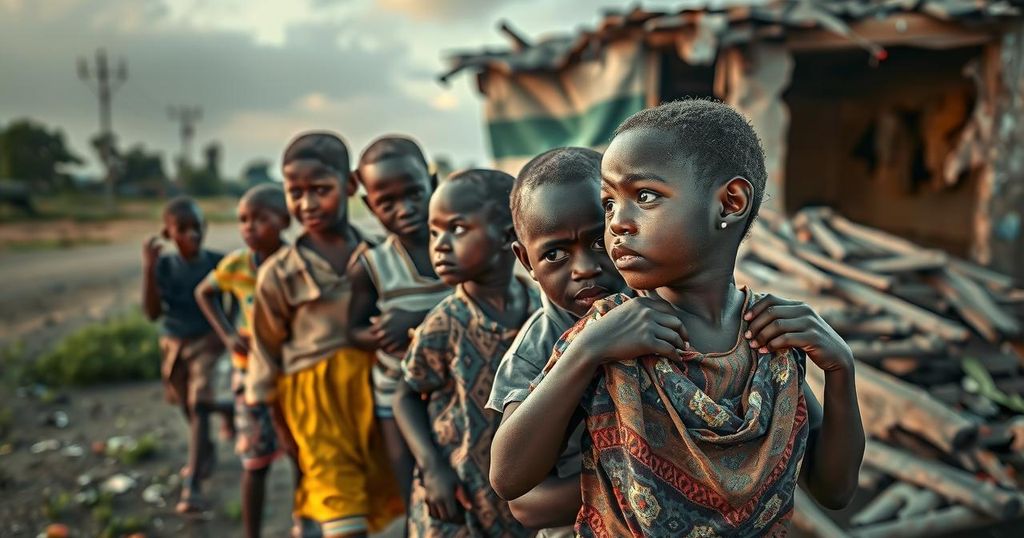The civil conflict in Sudan has resulted in nearly five million children being displaced, with many suffering from severe hunger and famine. UN humanitarian chief Tom Fletcher emphasizes the urgent need for assistance, noting that over 25 million Sudanese require immediate aid. Despite operational challenges, local and international efforts are ongoing to provide relief and rebuild communities affected by the crisis.
Mahmoud, a resilient teenager and Sudanese orphan, exemplifies the plight of nearly five million displaced children amid the ongoing civil war in Sudan. His story highlights the dire humanitarian crisis affecting the nation, which is characterized by pervasive hunger and famine, particularly in select regions. The UN’s humanitarian chief, Tom Fletcher, underscores the urgent need for assistance, as over half of Sudan’s population, approximately 25 million people, require immediate support. Fletcher emphasized the significance of showcasing Sudan’s situation during his inaugural field mission, drawing attention away from other global crises.
Children like Mahmoud, currently residing in a makeshift orphanage in Kassala, have faced tragic upheaval due to relentless violence between the army and the paramilitary Rapid Support Forces (RSF). Their journey from uprooted homes in Khartoum to precarious shelters is marked by chaos and loss. Despite their harrowing experiences, many children, including Mahmoud, hold onto dreams of rebuilding their communities.
Aid efforts remain critically challenged as agencies strive to reach vulnerable populations amidst ongoing violence and logistical barriers. The UN has recently made progress in establishing supply hubs and gaining access to famine-stricken communities, yet the road to deliver substantial aid remains fraught with obstacles. As humanitarian workers tirelessly attempt to address these urgent needs, they acknowledge an environment of severe risk and limited resources.
In collaboration with local organizations, Sudanese citizens have demonstrated resilience and solidarity through initiatives to assist those in dire situations. Figures like Mama Nour, who provides shelter for abused women and orphaned children, showcase the collective effort to support the most vulnerable. Indeed, the Sudanese community’s resolve to confront adversity and advocate for necessary aid is evident, though they continue to urge external support to alleviate their suffering.
The ongoing civil war in Sudan has resulted in catastrophic humanitarian consequences, particularly affecting children who are increasingly displaced and vulnerable. With the conflict primarily driven by struggles for power between military factions, millions of citizens have been forced from their homes, leading to widespread hunger and hardship. As famine declarations proliferate in certain areas, international organizations and local groups engage ceaselessly to provide aid amidst perilous conditions, revealing the depth of the crisis and the urgent need for global attention.
In summary, the civil war in Sudan has unleashed profound suffering and displacement, particularly among children like Mahmoud, whose aspirations for a constructive future underscore the resilience of the Sudanese people. The humanitarian crisis presents immense challenges, with critical efforts underway to deliver aid despite significant risks. The collaboration between international bodies and local citizens reflects a shared commitment to overcoming adversity and restoring hope within this tumultuous landscape. Further global assistance remains essential to halt the trajectory of suffering and to facilitate recovery for affected communities.
Original Source: www.bbc.co.uk







